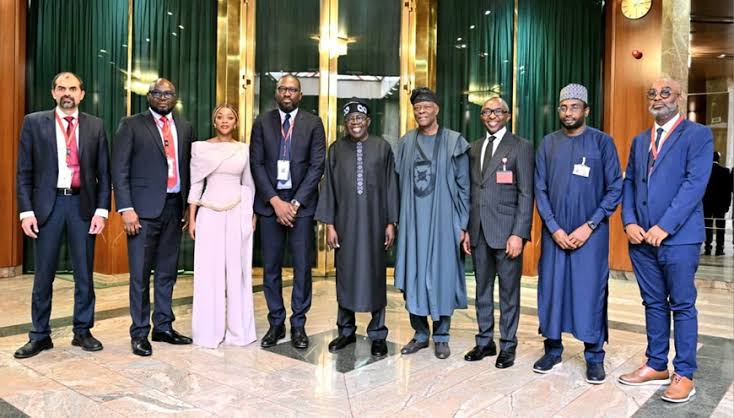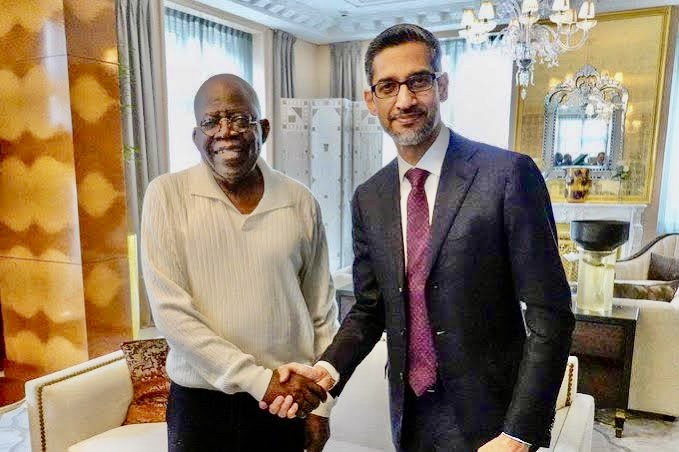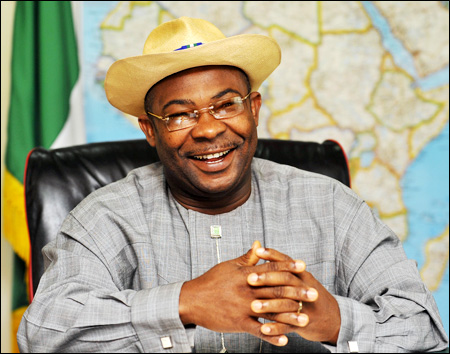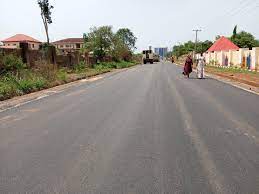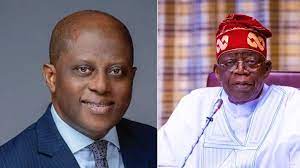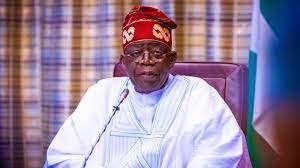President Tinubu is considering IT ecosystem stakeholders for important seats in his government.
President Tinubu is considering four IT ecosystem players for key roles. The Tinubu administration reportedly considered Bosun Tijani, Oswald Osaretin Guobadia, Olumide Soyombo, and Idris Alubankudi Saliu for ministerial positions.
Two presidential sources verified that these individuals had been considered for federal jobs. They’ve all been considered for ministerial positions, but I can’t guarantee it. An unidentified insider said they may receive new positions.
Read also: President Tinubu signs executive orders to boost Nigerian technology sector
These four have led large-scale technological projects and garnered respect in the African tech industry. Nigerians who have long lobbied for industry-specific specialists in crucial jobs are hopeful that Tinubu’s selection will include technocrats.
Bosun Tijani
CcHub CEO and co-founder Bosun Tijani. He expanded CcHub to Nigeria, Kenya, and Namibia. CcHub, which started in Yaba, empowers young people with the skills, communities, and cash they need to establish effective companies. In 2016, Mark Zuckerberg visited CcHub.
Tijani has a Bsc. in Economics and a Diploma in Computer Science from the University of Jos, Nigeria. He earned a Warwick Business School MSc in Information Systems and Management. Tijani earned a PhD in Innovation and Economic Development from Leicester University in March.
At CcHub, Bosun Tijani advocates for social change. CcHub’s billion-naira growth fund will influence 95 early-stage enterprises, including those innovating Africa’s education and healthcare sectors. Tijani was one of New Africa Magazine’s 100 most important Africans in 2017.
Oswald Osaretin Guobadia
Buhari’s Senior Special Adviser was Oswald Osaretin Guobadia. He designed and drafted the Nigeria Startup Act (NSA), one of the presidency’s biggest tech ecosystem achievements. He co-founded DBH, an African infrastructure and IT company that delivers advice and specialised solutions worldwide.
Guobadia earned a Bachelor of Science in Biology from Wesley College and a Master of Science in Telecommunications and Computer Science from PACE University, a private New York university. Guobadia was VP at Goldman Sachs for five years after graduating. Guobadia entered politics to make Nigerian business simpler. After leading UBA and Renaissance Capital, he became a policymaker and helped write the NSA, which aims to make Nigeria more business-friendly and attract foreign investment. Globally lauded, Nigeria’s 36 states are working to domesticate the startup act. Domesticating the act among states has been difficult.
Over a decade, Guobadia built banking infrastructure, trading floors, and tech solutions for government and corporate clients at DBH. This post exposed Guobadia to both public and private sectors, preparing him for national policy leadership.
Olumide Soyombo
Nigerian investor Olumide Soyombo. He invested in Paystack, a pan-African payments startup acquired by Stripe for $200 million. Beyond Paystack, Soyombo is one of Nigeria’s most prolific angel investors, shaping the country’s technological sector. Voltron Capital, an early-stage investment vehicle, has sponsored 48 startups since 2021. Project Manager. Soyombo has a BSc in systems engineering from Lagos University. Aston University, Birmingham, awarded him an MSc in Business and Information Technology in 2006. After graduating, Soyombo founded Bluechip Technologies, a data storage and business intelligence startup for Microsoft and Oracle, in Nigeria.
Banks and organisations worldwide use BlueChip Technologies’ data solutions and enterprise-level IT consulting. Last year, the data storage leader in Africa extended to Europe to serve European organisations.
Idris Alubankudi Saliu
Idris Alubankudi Saliu is a longtime Nigerian entrepreneur, investor, and IT champion. Former Interswitch Group CTO. Interswitch acquired Saliu. Interswitch bought Vanso, a software and telecoms company in Lagos, Capetown, and Wurzburg, Germany, for an undisclosed amount. Six-figure exit reports are unconfirmed.
Saliu earned a BSc in Computer Science from Columbia University, New York. He co-founded Arca and UK-based Ceviant. Ceviant offers global treasury and commerce solutions. Including Dantata and Wakanow.
Saliu has over two decades of experience in telecommunications, payments, and scalable digital infrastructure in the Nigerian IT industry.
Tinubu’s digital portfolios
Tinubu pledged to increase internet penetration, overhaul blockchain policy, and create one million ICT jobs in two years during his presidential campaign. As shown by these stakeholders, achieving these goals involves appointing industry-specific experts. As said, they could be recommended for further government digital posts.
Technology improves productivity and can transform any ministry. Certain ministerial portfolios demand digital technocrats. These portfolios include communications and digital economy, research and technology, information and culture, finance, and trade and investments.
This article’s specialists fit the first two portfolios, which shape a nation’s digital future. However, Nigeria’s science and technology government promotes life and physical sciences. This may expand its ministerial pool.
NASENI calls for investment in renewable energy solutions
Skills required for the job
Technology and digital economy ministries need leaders with experience managing huge technical initiatives and using blockchain, AI, and cybersecurity systems. Paula Ingabire, a pro-blockchain MIT graduate, is Rwanda’s minister of information and communications technology. Paula attends Rwanda Blockchain Community meetings monthly.
Nigeria, with a new CBN leadership and a pro-blockchain presidency, needs a well-informed expert at the head. An experienced executor who can guide the country’s growing relationship with modern technologies and foster growth and innovation will fill the shoes.
Trade and finance ministries need leaders who can use technology to optimise trade and finance at all levels. Financial inclusion and digital entrepreneurship in Nigeria are primarily private sector-led and might benefit from government innovation. The AfCFTA and PAPSS expand Nigeria’s e-commerce possibilities. A private-sector business veteran with the “innovate and deploy fast” philosophy of technology businesses may be what the country needs.
One thing is certain: the eventual appointees will have to pull their weight around their offices and bring needed improvements to Nigerians—whether they are IT leaders or not.
